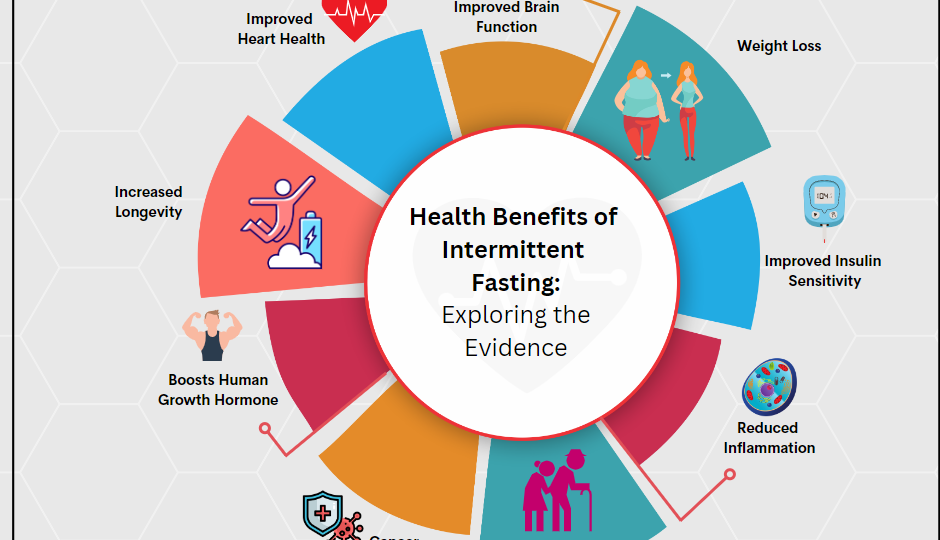
Intermittent fasting is a dietary pattern that involves alternating periods of fasting and eating. This approach to eating has gained popularity in recent years, with many people claiming that it can lead to weight loss, improved health, and increased longevity. In this article, we will explore the evidence behind the health benefits of intermittent fasting.
Intermittent fasting involves alternating periods of eating and fasting.
There are several different approaches to intermittent fasting, including:
Time-restricted feeding: This involves limiting the daily eating window to a specific period of time, such as 8 hours, and fasting for the remaining 16 hours.
Alternate-day fasting: This involves fasting every other day, either by consuming no food at all or by limiting calorie intake to 25% of normal.
5:2 fasting: This involves eating normally for five days of the week and consuming only 500-600 calories on two non-consecutive days.
Weight Loss
Intermittent fasting has been shown to be an effective tool for weight loss. By reducing calorie intake during the fasting period, it is possible to create a calorie deficit, leading to weight loss. In addition, intermittent fasting has been shown to increase levels of the hormone adiponectin, which is involved in regulating metabolism and weight loss.
Improved Insulin Sensitivity
Intermittent fasting has been shown to improve insulin sensitivity, which is the ability of the body to use insulin effectively. This can lead to a reduction in blood sugar levels and a decreased risk of developing type 2 diabetes.
Reduced Inflammation
Intermittent fasting has been shown to reduce inflammation in the body.
Chronic inflammation is associated with many chronic diseases, including heart disease, cancer, and Alzheimer’s disease. By reducing inflammation, intermittent fasting may help prevent these diseases and improve overall health.
Increased Longevity
Intermittent fasting has been shown to increase lifespan in animals.
While more research is needed to determine if this effect is seen in humans, some studies have suggested that intermittent fasting may lead to increased longevity and a reduced risk of age-related diseases.
Improved Brain Function
Intermittent fasting has been shown to improve brain function and may reduce the risk of age-related cognitive decline. One study found that intermittent fasting improved cognitive function in older adults and may even help prevent Alzheimer’s disease.
Improved Heart Health
Intermittent fasting has been shown to improve several markers of heart health, including blood pressure, cholesterol levels, and triglycerides.
This may help reduce the risk of heart disease, which is the leading cause of death worldwide.
Intermittent fasting is a dietary pattern that has gained popularity in recent years due to its potential health benefits. While more research is needed to fully understand the effects of intermittent fasting on human health, the evidence to date suggests that it may be a useful tool for weight loss, improved insulin sensitivity, reduced inflammation, increased longevity, improved brain function, and improved heart health.
As with any dietary pattern, it is important to speak with a healthcare provider before starting intermittent fasting.





















